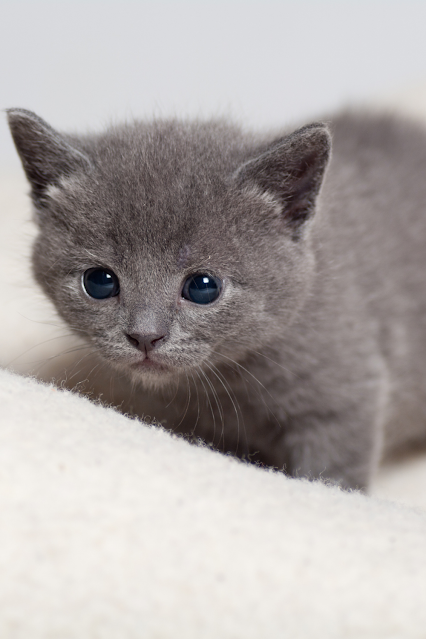Kittens are playful and adventurous, always getting up to mischief. This is part of what makes them so lovable. However, sometimes a kitty’s misadventures can get them into trouble. They might climb too high, get lost, or become entangled in something from which they cannot escape.
 |
These are not the only potential hazards that kittens face. Getting their teeth into some foods can be harmful, if not deadly. Kitten owners should be careful about what they leave lying around as their kitty’s natural curiosity could get the better of it. Here are some human foods that kittens should not lay their paws on:
Dairy products
When you think about kittens, the image of an adorable feline lapping up a bowl of milk might come to mind. After all, dairy products are rich in protein, calcium, Vitamin B12, riboflavin, and phosphorus, and kittens require these nutrients to grow and have strong bones and teeth. Owners are advised to give their kittens organic cat multivitamins to guarantee their nutrient intake. Most cats love dairy products. Unfortunately, dairy products do not love felines. Milk, cheese, and other dairy products can cause digestive disruptions to a kitten’s system, leaving them with a severely upset stomach. Kitten owners whose fur babies consume dairy products should expect vomiting and diarrhea for a day or two.
Many kitten owners assume that cow’s milk is ideal for their tiny felines once weaned off mother’s milk. While this is true for human babies, the same does not apply to cats. Once they stop drinking mother’s milk, kittens should start eating solids. If your kitten is too young for solids or lacks access to mother’s milk, consult your veterinarian for a recommendation for a kitten milk formula, which provides essential nutrients.
Chocolate
Your kitten will stare at you longingly when you eat chocolate. It is sweet and delicious, and few people and animals can resist it. However, chocolate is not good for pets, especially kittens. Their little bodies and digestive systems are too immature to process it. Cat owners should not feed their felines chocolate, even when they are fully grown.
The reason chocolate is unhealthy for cats is that it contains theobromine and caffeine.
Theobromine is present in cacao seeds, the primary ingredient in chocolate products. It is a bitter, volatile alkaloid and has physiological effects similar to caffeine. Caffeine is a stimulant that has diuretic effects, which causes excessive urination, leading to dehydration. Kittens that eat chocolate could experience heart failure or lethargy or enter a coma.
So it's necessary to always be ready for any health issues which may happen with your furry companion, click here to check pet insurance alternatives, which are quality and helpful in case of emergency.
Raw eggs and meat
Cats eat raw meat when they hunt in the wild, and many owners assume that feeding them this substance cannot be harmful. However, raw meat and eggs might contain E. coli and salmonella bacteria, which can cause diarrhea, vomiting, and listlessness. In severe cases, these bacteria could prove fatal for kittens.
Another harmful effect of feeding kittens raw eggs is the protein avidin, which inhibits the absorption of Vitamin B biotin. A biotin deficiency could cause problems with a kitten’s skin and coat. Cook any meat or eggs you intend to feed a kitten. This includes tuna, which could be harmful when consumed in large quantities, even when cooked. Too much tuna could cause mercury poisoning, and a kitten’s body is too fragile to recover from it.
Grapes and raisins
It is not clear why grapes and raisins adversely affect cats. However, the results of feeding them to your cat could be catastrophic, as it could cause kidney failure. Feline kidneys are already sensitive to infections as cats and kittens often do not consume enough fluids. Adding grapes or raisins to the mix could be too much for a kitten’s body to bear.
Not all kittens are affected after consuming grapes and raisins, although experts advise that it is not worth risking it to see if a feline has a an adverse reaction. If a kitten has eaten grapes or raisins, its owner should look out for hyperactivity and repeated vomiting as indicators that something is wrong. Immediate action and a trip to the vet would be advisable.
Avocados
The flesh of an avocado fruit has countless benefits for humans, but the same cannot be said for pets, including birds, cats, and dogs. A kitten should never eat avocado as it could prove fatal. Animal digestive systems, especially those of primarily carnivorous eaters like cats, process fruit and vegetables differently. Avocados contain Persin, a toxin harmful to cats and other pets. Additionally, an avocado pit poses a choking risk to any animal that gets hold of one.
Persin can cause vomiting, diarrhea, stool obstruction, or pancreatitis in adult cats. These symptoms can be treated with relative ease by a vet. However, a kitten’s digestive system is still developing and remains vulnerable to upsets until fully grown. Therefore, the harmful effects of Persin will be more pronounced in a juvenile feline.


Post a Comment